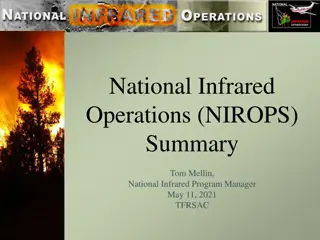
Hamlet Characters and Their Roles
Explore the key characters in Shakespeare's "Hamlet," from the ghost of King Hamlet to figures like Fortinbras, Rosencrantz, and Guildenstern. Dive into the intricacies of each character's role in the play, their relationships with Hamlet, and their ultimate fates. Unravel the intertwined destinies of these characters against the backdrop of political intrigue, betrayal, and revenge in the Danish court.
Download Presentation

Please find below an Image/Link to download the presentation.
The content on the website is provided AS IS for your information and personal use only. It may not be sold, licensed, or shared on other websites without obtaining consent from the author. If you encounter any issues during the download, it is possible that the publisher has removed the file from their server.
You are allowed to download the files provided on this website for personal or commercial use, subject to the condition that they are used lawfully. All files are the property of their respective owners.
The content on the website is provided AS IS for your information and personal use only. It may not be sold, licensed, or shared on other websites without obtaining consent from the author.
E N D
Presentation Transcript
Hamlet: Characters King Hamlet (The Ghost) He is the former King of Denmark. King Hamlet appears as a ghost and exhorts his son to kill Claudius, whom he says has killed him in order to secure the throne and the queen of Denmark. Hamlet fears that the ghost is an imposter, an evil spirit sent to lure him to hell. King Hamlet's ghost reappears in Act Three of the play when Hamlet goes too far in berating his mother. After this second appearance, he does not appear again in the play.
Hamlet: Characters Rosencrantz & Guildenstern They are friends of Hamlet's from the University of Wittenberg. Claudius invites them to court in order to spy on Hamlet to uncover the real cause of his madness. Both are rather weak and obedient Rosencrantz more so than Guildenstern and neither is intelligent enough to really fool Hamlet. After Hamlet kills Polonius, Rosencrantz and Guildenstern accompany him to England. They carry a letter from Claudius asking the English king to kill Hamlet upon his arrival. Hamlet discovers this plot and changes the letter so that Rosencrantz and Guildenstern are killed instead. We learn that they have indeed been executed at the very end of the play.
Hamlet: Characters Fortinbras He is the Prince of neighboring Norway. In many ways his story is similar to Hamlet's: his father has been killed by Hamlet s father, and Fortinbras is looking for revenge; he too is impeded from ascending the throne by an interfering uncle. But despite their biographical similarities, Fortinbras and Hamlet are extreme opposites. Where Hamlet is pensive and mercurial, Fortinbras is all action. He leads an army through Denmark in order to attack disputed territory in Poland. Fortinbras arrives in Denmark just as the climax is reached. At Hamlet s recommendation and due to a distant connection, Fortinbras becomes the next king of Denmark.
Hamlet: Characters Orsic He is a stupid courtier who plays a minor role as the King's messenger and as referee of the fencing duel between Hamlet and Laertes.
Hamlet: Characters Voltimand and Cornelius They are both Danish courtiers sent by Claudius as ambassadors to the Court of Norway.
Hamlet: Characters Marcellus and Barnardo They are both Danish officers on guard at the castle of Elsinore.
Hamlet: Characters Francisco He is a Danish soldier on guard at the castle of Elsinore.
Hamlet: Characters The Gravediggers They are two rustics (identified as clowns) who dig Ophelia's grave.
Hamlet: Characters Reynaldo He is Polonius' servant, sent to Paris to observe and report on Laertes' conduct.
Hamlet: Characters The players This is a group of (presumably English) actors who arrive in Denmark. Hamlet knows this group well and listens, enraptured, while the chief player recites a long speech about the death of Priam and the wrath of Hecuba. Hamlet uses the players to stage an adaptation of "The Death of Gonzago" which he calls "The Mousetrap" -- a play that reprises almost perfectly the account of Old Hamlet's death as told by the ghost -- in order to be sure of Claudius' guilt.






















